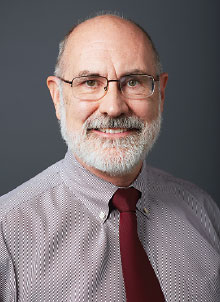C-L Psychiatrists Launch Innovative Model of Mental Health Care for Residents
Abstract
A free, confidential assessment is provided to residents in need, with referral to psychiatrists or mental health professionals contracted directly with the medical center.

Resident and fellow well-being and burnout have become critical issues in medical education, made more urgent by the COVID-19 pandemic. As options for treatment of psychiatric illness, most institutions have traditionally offered trainees either a private insurance plan or services in an institutional outpatient clinic (sometimes with a dedicated service for trainees).
Both have significant disadvantages: Trainees may have difficulty finding qualified health care professionals in the commercial plan able to take new patients and may experience arbitrary preauthorization and other managed care barriers. Many residents are deeply ambivalent about receiving care at a clinic within their own training institution.
In a presentation at the virtual annual meeting of the Academy of Consultation-Liaison Psychiatry, Paul Desan, M.D., Ph.D., director of the Psychiatric Consultation Service at Yale New Haven Hospital, described the successful development of a resident consultation and wellness service at Yale New Haven Hospital using a panel of mental health professionals outside of the institution, contracted with the institution, to whom residents are referred for psychiatric treatment. “At our institution, we became frustrated with the care provided by the standard insurance provider, and we didn’t have an institutional clinic with a dedicated service for residents,” he said.

“For years we ignored physician health, but we do have to care for our own.” —Paul Desan, M.D., Ph.D.
As an alternative, Desan and Alice Papsun, M.D., director of psychiatric consultations at the Yale New Haven Primary Care Clinic, developed a panel of 12 mental health professionals in the community who contract directly with the medical center to provide care for trainees referred to them. “We have gone to great lengths to pick providers we think are good at working with residents and who offer evening and weekend appointments,” he said.
The provider panel includes six psychiatrists, two social workers, three psychologists, and a neuropsychologist.
Desan and Papsun provide the initial consultation and referral for medical and surgical trainees. Because he has little to no day-to-day contact with those residents, Desan said there have been no conflicts around privacy or confidentiality. He does not provide consultations to residents in psychiatry, for whom there are alternate resources. (There are more than 1,200 residents and fellows at Yale New Haven Hospital.)
“We advertise this as a free, confidential consultation service,” he said. “In the assessment, I take care to emphasize that our notes [taken at the time of assessment] are private and are not part of the hospital record system. We emphasize that treatment is voluntary, and we do not report to the trainees’ program director or anyone else.
“There is substantial concern about privacy among trainees,” Desan said. “It’s optimal to have resources outside the institution if possible. There remains a lot of stigma about psychiatric care among residents and misunderstanding about how it may affect licensure and employment prospects.”
Resident Consult Service Proves Successful
Since 2018, trainees’ use of the Yale New Haven Medical Center Resident Wellness Consult Service and provider panel has grown dramatically, with 578 visits to mental health professionals on the panel in the first half of 2020. Paul Desan, M.D., Ph.D., director of the Psychiatric Consultation Service at Yale New Haven Hospital, said that the stresses on trainees during the COVID-19 pandemic have driven up demand.
Desan and Alice Papsun, M.D., director of psychiatric consultations at the Yale New Haven Primary Care Clinic, conducted a retrospective review of the cases of 51 medical and surgical trainees at Yale New Haven who received a consult and referral. They found that 23 (45%) presented with chronic or longstanding mental illness, 17 (33%) presented with a new episode of mental illness, and 11 (22%) presented with a recurrent episode of a previously diagnosed mental illness.
Most residents (41%) presented in the first year of training, and the overwhelming majority presented with depression (80%), followed by generalized anxiety disorder (39%). Other presenting disorders included panic disorder (16%), eating disorders and bipolar disorder (12% each), and attention-deficit/hyperactivity disorder (10%).
Approximately 6% of residents had a substance use disorder.
The medical center covers 16 visits per episode of illness with the contracted community provider, with follow-up every three months (see box).
Desan said his role as resident wellness consultant began informally more than 15 years ago; in 2015 the title was formalized, and he began being paid for his time by the Division of Graduate Medical Education at the hospital. Over time, the job has grown to include mentoring residents wishing to make career changes and curbside consultations to program directors about behavioral issues in their residency program and possible educational accommodations.
The wellness program has begun offering coaching to residents regarding organizational skills and interpersonal function. Light treatment devices are available for loan to residents with seasonal changes in mood or energy, Desan said.
He said the success of the Resident Wellness Consultation program can be a model for consultation-liaison psychiatrists and institutions interested in being proactive about resident health and well-being. He said that he has seen trainees fail or drop out because they didn’t get treatment for a mental disorder that might have been easily treated or managed.
“For years we ignored physician health,” he told Psychiatric News after the meeting. “But we do have to care for our own. What we have done at Yale New Haven is a way of avoiding the problems inherent in simply handing trainees an insurance card and expecting them to find good quality care on their own or sending them to a clinic at the institution where trainees feel their confidentiality may be compromised.
“Instead, we are saying to residents, ‘We want to provide you concierge care, with a free confidential assessment and referral to the treatment in the community that is right for you.’ ” ■



